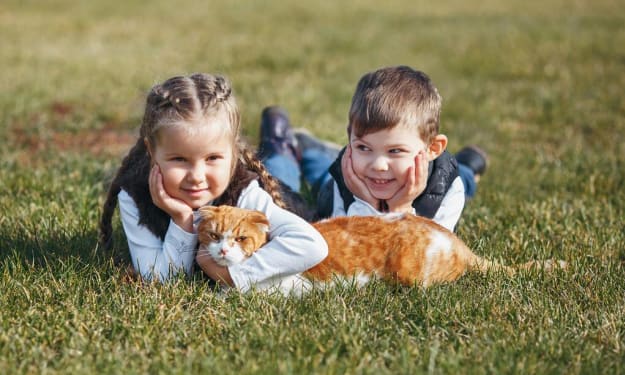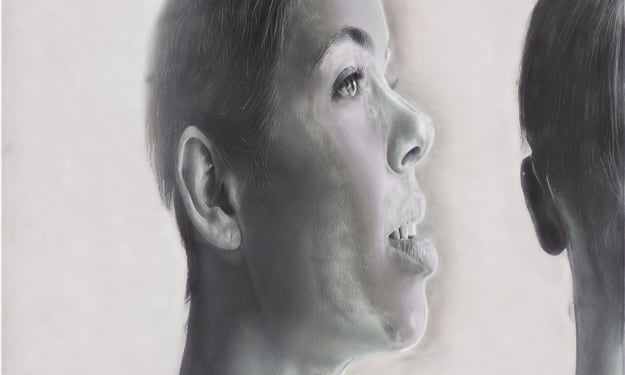The harm behind "corporal punishment", the child can not bear
Parents need to stop hounding

To make their children obedient, many parents choose to use corporal punishment. It may be effective in the short term, and the child behaves exceptionally well because he or she is afraid of being punished again. But corporal punishment, a form of discipline, is worth too much damage, both physically and psychologically to the child.
There are many ways to teach children, but corporal punishment is one of the most useless. When problems arise, chastising the child will only end up depressing them and limiting their growth. Forced by parental force, children can only obey, but inside they are extremely reluctant. Being forced to obey is a complete cure for the symptoms and not the root cause of the problem. Educating children should be focused, not lazy.
What are the damages of corporal punishment for children?
1, more and more rebellious
Parents should be aware of the truth that "what goes around comes around", the purpose of education is not corporal punishment, but to make the child realize the mistake from the inside so that there is a chance to correct it. This kind of oppressive education may initially have an effect, but over time, the child will eventually explode completely. The rebellious thoughts that have been pent up inside will eventually be released. At that time, the gift back to parents is more extreme rebellion, which is not the result parents want.
2, no sense of security
In addition to the responsibility of education, parents also have the burden of companionship. Corporal punishment will only make the child's inner fear, not feel his parents care for him, and then create a false impression that his parents do not like him. Over time, such a mentality will leave the child lacking in self-confidence, and even a sense of security lost. Parents only look at the immediate results of educaion but have not thought deeply about whether this type of education is not appropriate.

3. Influence on Personality
Those parents who like to physically punish their children, and at the same time complain about their children's introverted personalities, you know that the formation of character, in fact, with the growth environment, and parental education has a lot to do with it. Children who are encouraged will always see the positive side of the sun, but children who are physically punished will always be in fear and timidity.
Therefore, corporal punishment will only make the child's personality more introverted or even become inferior and reluctant to communicate with others. It is important to understand that children have a strong ability to imitate, and that "violent" corporal punishment by parents may make children even more irritable.
So corporal punishment is not the ideal way of education, but will push the child further away from the parent-child relationship and will also alienate a lot. It is inevitable to make mistakes, parents should take into account the actual situation of the child and choose the most beneficial way of education for him. In this way, the purpose of educating the child can be achieved. Parents should try to change their mode of education and may reap greater surprises.
Abandoning corporal punishment and choosing the right education method is important
1, communication education
No child will make a mistake for no reason, whether it is a big mistake or a small mistake, I believe there is a reason, but parents are too subjective and do not want to listen to the child's explanation. Once found that the child made a mistake, directly will choose the extreme physical punishment method, not give the child the opportunity to defend themself, of course, never trust can be said.
Education also requires gentleness, giving children some understanding, and understanding them through the "law of communication". Listen to their explanations, see what the reasons for the child's mistakes are, and then just take care of them. This is the only way to make the child feel recognized and respected by the parents. At this point, the child's inner resistance will also be released, for the parents to put forward suggestions, more easily accepted.
2、Try to accept
Parents should put away the idea of criticism and corporal punishment, combined with the reasons for the child's mistakes, to give the correct way of education is the key. Many times, the child may not realize that they made a mistake, this time the parents of corporal punishment and criticism, will only hurt and destroy the child's self-esteem. In addition, if parents often punish the child physically, even if the child knows he has made a mistake, he may not want to admit it because he is afraid of punishment.
Now that the mistake has been made, the parent has to convince himself to accept it. Next, as long as the parent is emotionally calm, a large part of the inner fear is removed for the child. At this point, discuss with the child his mistake, point out the problem and give suggestions for correction for reference.
3、Encouragement education
Compared to corporal punishment, encouragement education is more effective. The first time you make a mistake, parents only need to pass on the concept of "making a mistake" to the child, so that he knows he has done something wrong. Next, encourage the child to correct his behavior, and once his behavior has improved, parents should give appropriate rewards. In a gentle tone, tell the child that mistakes are not so terrible and that "knowing how to correct them" is progress.
Since the parent's goal is to make the child aware of his or her mistakes, it is important not to punish the child physically. Children who have been physically punished are not aware of their mistakes but are simply afraid. And it is not conducive to their healthy growth as they are already seriously hurt inside. Treat your child's mistakes rationally and educate with love and tolerance






Comments
There are no comments for this story
Be the first to respond and start the conversation.